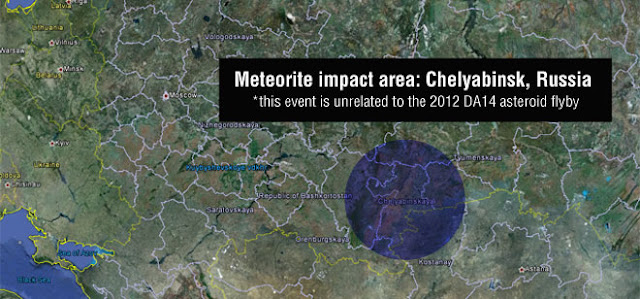Scientists studying small pieces of the meteor that exploded over the Russian city of Chelyabinsk on Feb. 15 are working to glean new insights into the rare impact by a space rock.
Based on the meteorite analysis, researchers have determined that last month's meteor explosion in Russia — which scientists call a superbolide — produced a shock wave that reached the ground. That shock shattered windows and injured some 1,500 people due to flying glass.
The blast also created a shower of stony meteorites that fell to Earth in an impact region more than 60 miles (100 kilometers) long.


No comments:
Post a Comment